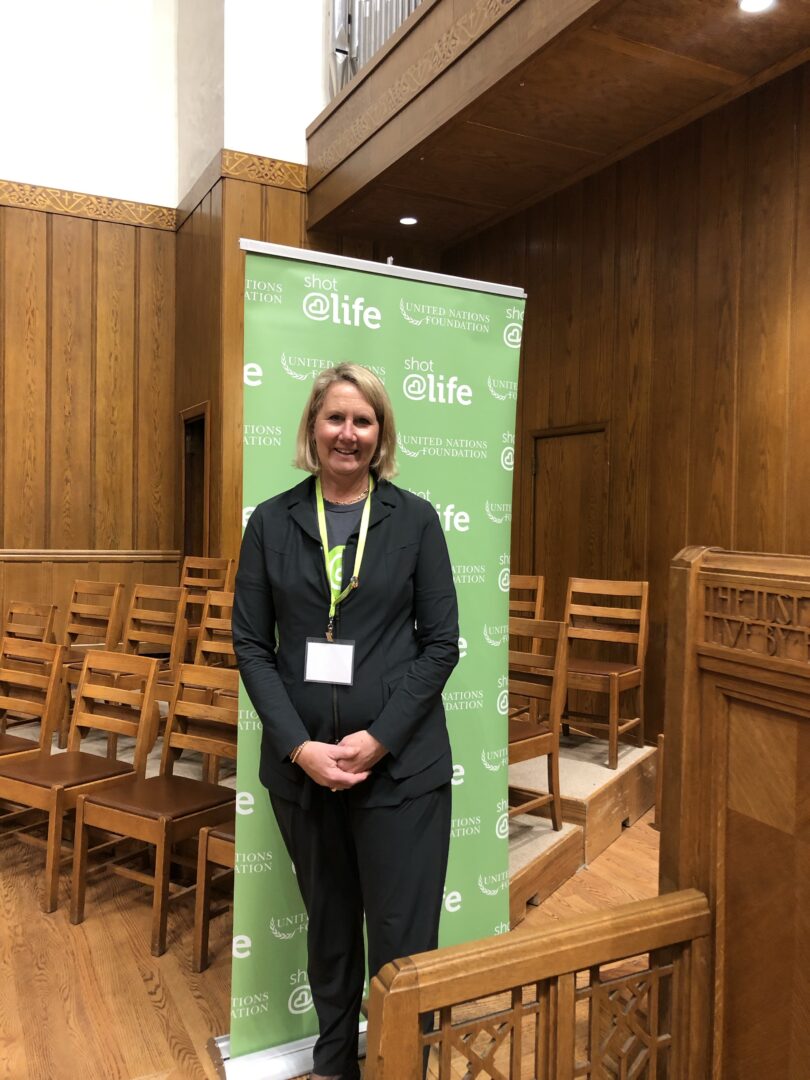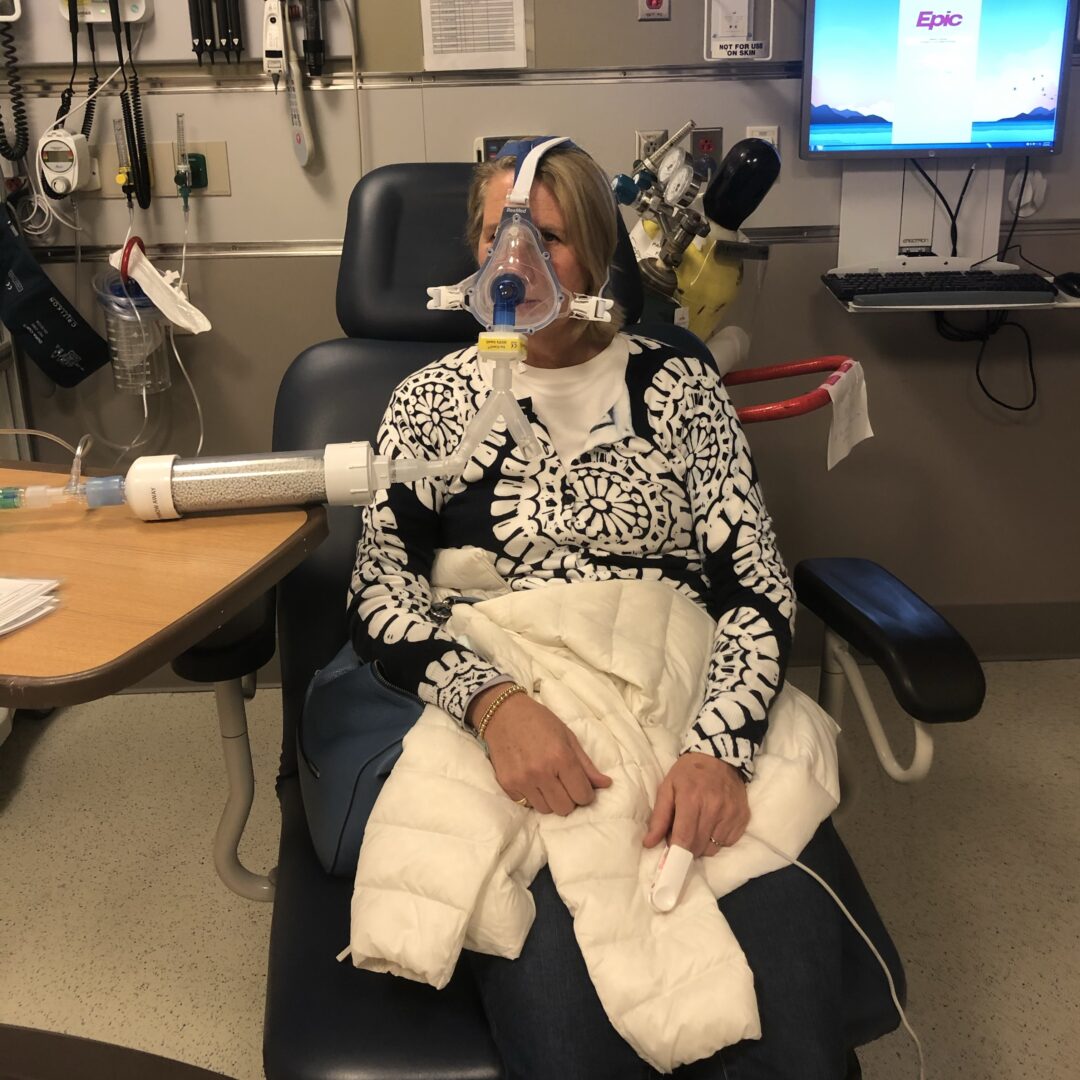Katy
A COVID Story
Place of Residence: Wilbraham, MA
Katy is a COVID-19 survivor who suffers from long-term impacts of her illness. Prior to COVID, she was healthy and living an active lifestyle – enjoying things like work, yoga, and cooking. Now she suffers from long-term medical complications that were caused by her COVID infection. Katy shares her story to help educate others and remind them of the importance of staying up to date with COVID and other routine vaccinations.
In her own words, Katy shares how COVID-19 caused her to develop long-term health complications. Even though she was previously healthy, COVID significantly impacted her life, both personally and professionally.
How did your illness start?
In December 2019, I was working as a Teacher Licensure Coordinator in Massachusetts and had been traveling to Canada when I contracted a respiratory illness that resulted in the need for a lung x-ray. I eventually recovered, but still wasn’t quite back to 100% when I contracted COVID-19 in April 2020. I was experiencing serious symptoms, including a cough and difficulty breathing. My doctor at Massachusetts General Hospital immediately ran some tests, including a chest x-ray, and diagnosed me with COVID-19. My doctor said my lungs looked like broken glass.
What happened at the hospital?
That day at the hospital, my doctor put me on nitrous oxide treatment. I was actually one of the first people to receive this treatment. I stayed in the emergency room for over 10 hours as my husband waited anxiously in the parking garage due to the pandemic restrictions. I was finally sent home that night.

How did your illness progress?
Two weeks later, I went back to the hospital – but this time I received more x-rays, intravenous fluids, antibiotics, and cough medicine. It was frightening because I was placed in isolation and wasn’t allowed to have my phone due to contamination protocols. I had no way to keep in touch with my family and loved ones. This was obviously very upsetting to my family, but honestly, I was so sick that I couldn’t even think about it. I just needed rest because I hadn’t been sleeping for days due to the constant coughing.
At the hospital, so many people were coming and going, trying to provide me with the care I so desperately needed. The medical team would wheel in everything, including x-ray machines – all to try and contain the infection within the hospital. The world was so frightening at this time, and we were hearing so many stories of people dying from the virus.
My doctor at Massachusetts General Hospital immediately ran some tests, including a chest x-ray, and diagnosed me with COVID. My doctor said my lungs looked like broken glass.
What complications did you develop after your COVID-19 illness?
After leaving the hospital, it was determined that I needed pulmonary and rheumatology follow-ups which required me to drive up to 2 hours to Boston on a regular basis. I had to routinely take COVID-19 tests 24 hours before treatment. My own mother had a rare lung disease, and my father died of lung cancer, so I was so fortunate to have a large team of primary care doctors and specialists working to diagnose my post-COVID symptoms, some of whom had treated my parents.
I was eventually diagnosed with Interstitial Lung Disease (ILD), which is an autoimmune disease. Although my doctor originally wanted to do a lung biopsy, they were concerned it would cause further complications, not to mention that I would need to go into the hospital in the midst of the COVID-19 pandemic.

When I first got sick, I was confused how this happened to me.
They treated my lung disease with Rituximab, a monoclonal antibody used to treat certain types of cancer and autoimmune diseases. This treatment required me to drive to the Massachusetts General Cancer Center four times a year – and it takes nearly seven hours to complete one round of treatment! Now, I only have to go two times per year.
I’m also on very high doses of prednisone which has caused necrosis of my shoulder bones. I’ve had to undergo two shoulder replacement surgeries and am under constant care of rheumatologists to assess my ongoing functions. The pain across my back was so intense, I thought I had a broken shoulder. I tried everything – including needling, massage, yoga – but eventually I had to go through with the shoulder replacement.
I’m so grateful to Massachusetts General Hospital – they helped me through uncharted waters and never gave up on me. I’ve already had COVID-19 three times because I’m immunocompromised.
What do you want people to know about vaccines?
I make sure that I’m up to date on my recommended vaccines because I know how important they are. I follow every new CDC recommendation and stay up to date on flu, COVID-19, and all the recommended vaccines for my age group. I want people to know how important it is to follow these recommendations, including the recommendations for what to do if you get sick. If you are sick with any respiratory illness – whether that’s COVID-19, flu, or others – follow your doctor’s advice and please quarantine yourself until you’re feeling better to avoid spreading it to others.
Please remember that many people, including me, are high-risk. Getting vaccinated not only helps protect you, but it also helps prevent you from spreading it to someone else who may be high-risk. We rely on community immunity to help keep us safe. As a community, we can help protect one another if we get vaccinated.
How has COVID-19 affected your life?
I’ve had to significantly alter my career. Prior to the pandemic, I was in and out of classrooms, training the teachers in all grades, including those that teach young children and special needs children. My doctor advised me that I can no longer be in an environment with so many risks, so I work remotely and wear a mask when I’m in a classroom. I’m a strong advocate for adequate ventilation in classrooms and I ask people to wear a mask when they’re in my office. Fortunately, my institution is very supportive of my medical needs.
When I first got sick, I was confused how this happened to me. I was basically healthy, very active and obeyed the quarantine restrictions. There are many people who don’t understand my chronic illness and the complications I’ve had since COVID. I have trouble with my voice and I use my speech and lung therapy training techniques to keep myself well, but I miss having the energy I used to have before COVID. I used to be full of energy. I do my best to continue practicing yoga, Pilates, walking, and cooking, but I lose my energy later in the day. I’m usually in my pajamas early and if I have an evening event, that usually requires me to take a nap beforehand. I’m not letting this get me down and I hope that others will recognize that we need to be kind and protect one another by staying up to date on our recommended vaccinations!
BECOME A VACCINE ADVOCATE
There are lots of ways you can make a difference in your community.

